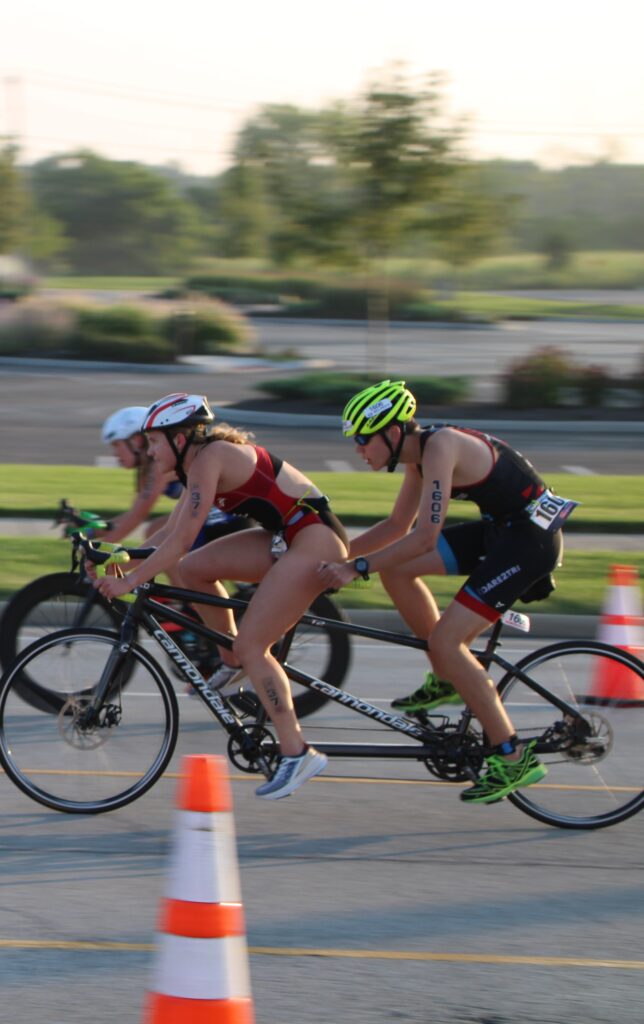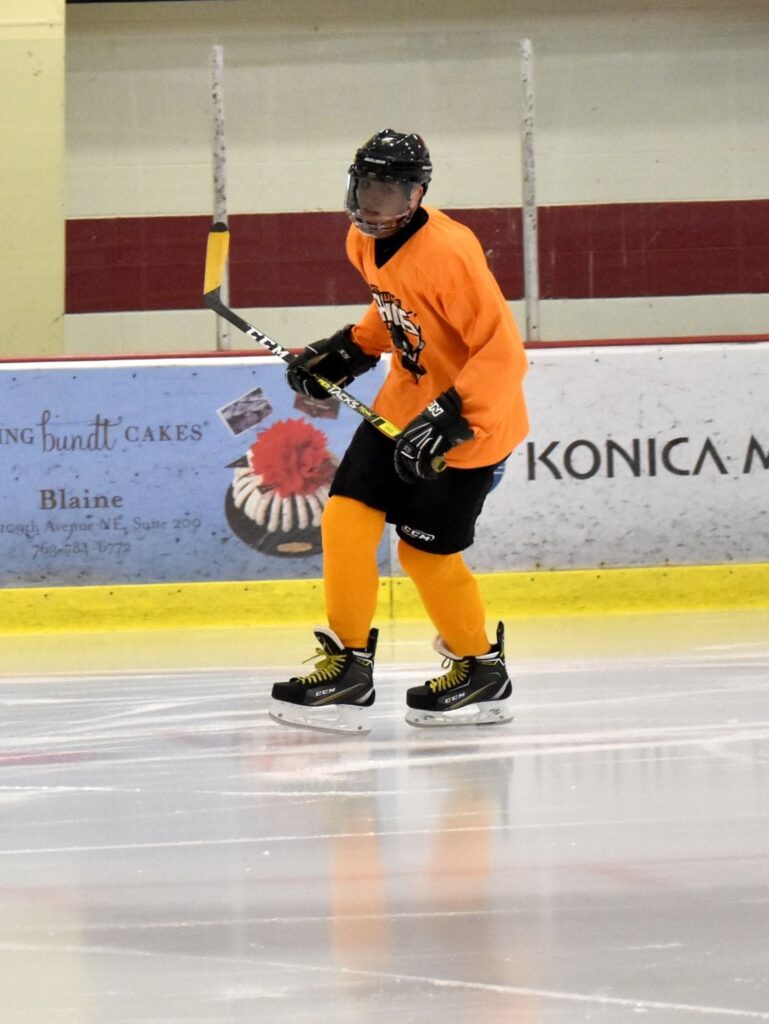The 17-year-old triathlete hopes to compete in the Paralympic Games one day. Thanks to a grant from the Foreseeable Future, he’s moving closer to that goal.
There are two ways to do something: the right way, then again.
At least that’s how Brock Kitterman sees it. The 17-year-old Bethel Park, Pennsylvania native has used that mindset to successfully navigate life’s challenges whether it’s his disability, a triathlon, or playing blind hockey.
When he was three months old, Brock was diagnosed with Bilateral Retinoblastoma, a type of cancer that affected both his eyes. The illness left him visually impaired, and subsequent treatments caused him to become hearing impaired as well.
But his parents, Grant and Tammy Kitterman, refused to fall into the trap of sheltering or overprotecting their son.
“His doctors are not so excited with the choices I make in allowing him to play hockey or do triathlon,” Tammy said. “We could choose to keep him in a bubble and not let him do anything, and he could walk up the stairs, trip, fall, hit his head and there goes his vision.”
That support system allowed Brock, an only child, to develop a confidence that’s immediately obvious to anyone who gets to know him.
“The early years of my life I was just your normal, typical child,” said Brock, who has 20/200 vision in his right eye and 20/400 in his left. “My parents have always been a blessing to me. Their support has been through the roof. They make sure everything is perfect for me be it sports, school, daily living, whatever.”
Brock began taking swim lessons at the local YMCA at age four, and joined a recreational team a year later. At seven, he competed in his first triathlon. The race consisted of one 15-meter lap across a wave pool, a hundred-yard dash on uneven pavement, and biking through a crowded parking lot and an uneven hill.
Racers were sent four at a time, so it wasn’t immediately obvious who had won until the awards ceremony. To the amazement of Brock and his parents, he came in first.
“(My mother) was so surprised, she didn’t even have her camera ready to take a photo of me when they called my name.”
Brock continued to enter triathlons, making the podium in each one. As the years went by, he would travel several hours from his home to compete in as many as 15 races in a three-month period. The competition and the adrenaline rush was like a powerful force that wouldn’t let go.
“It got me hooked simply because I was good at it, it was keeping me healthy, and it was something I could do other than sitting around my house watching TV or playing video games.”
Blind and visually impaired triathletes use sighted guides to compete in all three events. They are tethered to each other during swimming and running, and ride tandem in the biking competition. Since the same guide is used for all three events, they must also be triathletes.

Training for a triathlon is quite different than a specific sport. Brock trains several hours seven days a week, alternating between all three sports.
“Some days I’ll swim and bike, some days I’ll swim and run, and some days I’ll do all three. Luckily, all three kind of work with each other. So if I focus on biking one day, that will help benefit my endurance and my cardio when I’m running. They all build upon each other. It’s so much more intensive and time-consuming than training for one sport.”
Brock isn’t a typical teenager when it comes to diet. Soda, candy and other junk foods have never appealed to him. He’s perfectly content to eat fish, chicken, greens and other healthy food.
“I eat healthy because I want to. I’m not on any strict diet or regimen. I simply don’t feel a need to eat junk food.”
When he’s not competing in triathlons, Brock plays for the Pittsburgh Rhinos, a blind hockey team. After a change in management almost caused the team to fold, his parents stepped in and kept it running.

“They decided to step out of the picture,” Tammy explained. “I’d been a part of the team from the very beginning managing with the parents. It was just a matter of here we are and let’s get rolling.”
Tammy discovered the Foreseeable Future Foundation after seeing a post on social media. She helped Brock apply for a grant and he was accepted. The money was used to buy an electric shifting system on a new bike he just purchased for triathlon races. He’s extremely grateful to the foundation for helping him become better at his sport.
“I really needed that,” Brock said of the grant. “The current bike I’m on is old and very heavy. It’s a collector’s bike, not exactly meant for racing. The one I’m getting now is going to completely up my biking game, which is probably the biggest place I can gain in the sport simply because you’re on the bike the longest. The grant is going to allow me to take literal bounds towards my dream.”
Brock hopes to become a Paralympian and represent Team USA in Para triathlon competitions in the future. If blind hockey is approved as a Paralympic sport, he wouldn’t mind doing both.
“That is the dream. It keeps me going year-round.”
